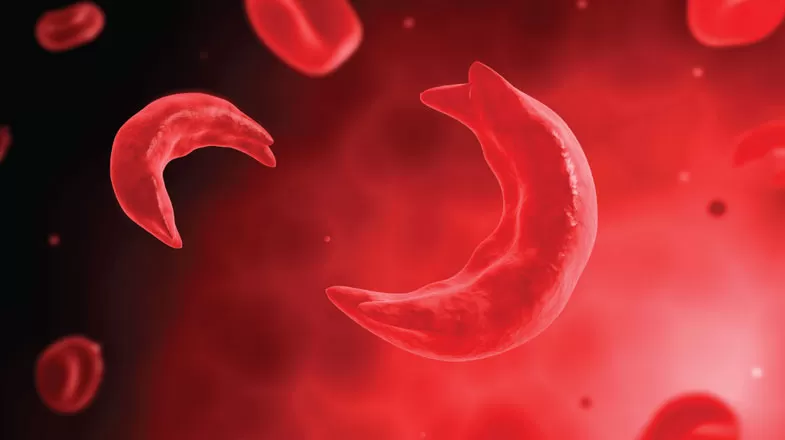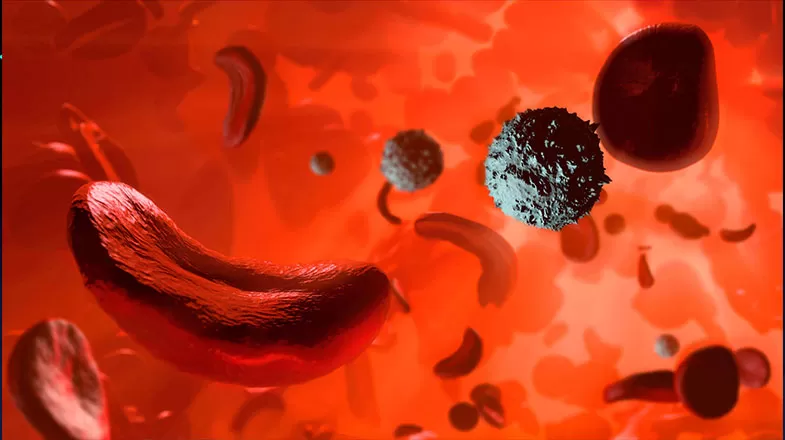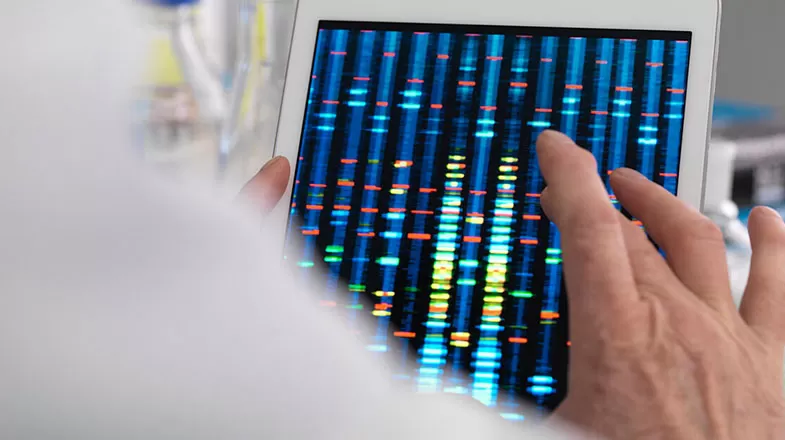Sickle Cell Disease Articles
Featured Articles
Read our latest stories on the people and scientific innovations making a difference in patients’ lives.

Purpose & Ideals
Patients’ Voices Shape the Drug Development Process Through a Preference Survey
Cory Lewis has sickle cell disease. Some days, the pain from the blood disorder hits him hard. Even on days without pain, he worries about his future and the health conditions that might arise. “It’s definitely 365 for me,” he says. As a program coordinator with Sick Cells, a sickle cell disease advocacy organization in Washington, D.C., Lewis regularly educates people about what it’s like to live with this disease—a rare, inherited condition, predominately (but not exclusively) impacting Black...

Genes as Medicine: Understanding Gene Therapy
Our genes are like a set of blueprints, telling our cells how to function and make essential proteins that drive life. In turn, these proteins influence everything from the color of our eyes to how well our blood clots. We have a lot of genes — between 20,000 and 25,000 in total. Every person has two copies of each gene, one from each parent. Sometimes genes can have a small mutation, or change to its protein-making instructions, which can cause certain diseases. Some of these mutations are...

Managing Sickle Cell Disease as an Adult
People with sickle cell disease (SCD) are now living longer than they did in previous decades. Doctors have a better understanding of the disease, are able to diagnose it earlier, and can more readily treat and prevent the infections the disease can cause. And thanks to new ways to treat and manage the condition, patients are now more aware of what they can do to live healthier, for longer. Still, there is currently no widely available or acceptable cure for the inherited blood disorder...

Sickle Cell Trait vs. Sickle Cell Disease
Millions of people worldwide are affected by the sickle cell blood disorder. About 100,000 people in the U.S. have sickle cell disease. It mostly affects African Americans, but it can also affect people from Hispanic, southern European, Middle Eastern and Asian Indian backgrounds.Another 2.5 million people in the U.S. have sickle cell trait (SCT). But having sickle cell trait (SCT) is not the same as having sickle cell disease (SCD).What is the difference between having sickle cell trait and...

Overcoming the Stigma of Sickle Cell Disease
People living with sickle cell disease (SCD), an inherited blood disorder that primarily affects African Americans in the U.S., have to deal with constant fatigue and severely painful episodes that can last for a few hours or as long as a week. Adding to these daily challenges, family, friends, and the general public can sometimes view people with SCD as weak, lazy or faking their symptoms. These stigmas even exist in healthcare settings, making it more difficult for people living with SCD to...

How I Became A Sickle Cell Warrior
In Kenya, where I was born, many people are aware of Sickle Cell Disease (SCD), more so than in the U.S. This may be because there is a greater proportion of the population in Africa that has the disease. My older brother and I were both born with SCD. We have also witnessed many people suffer from and lose family members and friends to the disease.For a long time, I lived in denial about having SCD. As a child, my view of it was very negative; I could not imagine anything positive ever coming...

Understanding Genetic Testing
How much do you really know about health problems that may run in your family? Are there any that may affect you now or in the future? Or that may affect your children? Genetic testing can help people and their healthcare providers make more informed health care decisions. But there are some potential limitations of genetic testing to be aware of, too. Read on to learn more. The background: What are genes/chromosomes? Genes are found in chromosomes, which are located inside cells. Genes are...

Purpose & Ideals
Connecting Patients to the Resources They Need
At Pfizer, we believe that patients should have access to the medicines they need. Which is why, for more than 30 years, Pfizer RxPathways has helped connect patients to a range of assistance programs that offer insurance support, co-pay help,[1] and medication for free or at a savings. Each year, we receive emails, cards, and phone calls from patients and caregivers across the country expressing their appreciation and gratitude for our services and support. Here are excerpts from just a...
Media Resources & Contact Information
Anyone may view our press releases, press statements, and press kits. However, to ensure that customers, investors, and others receive the appropriate attention, Pfizer Media Contacts may only respond to calls and emails from professional journalists.
